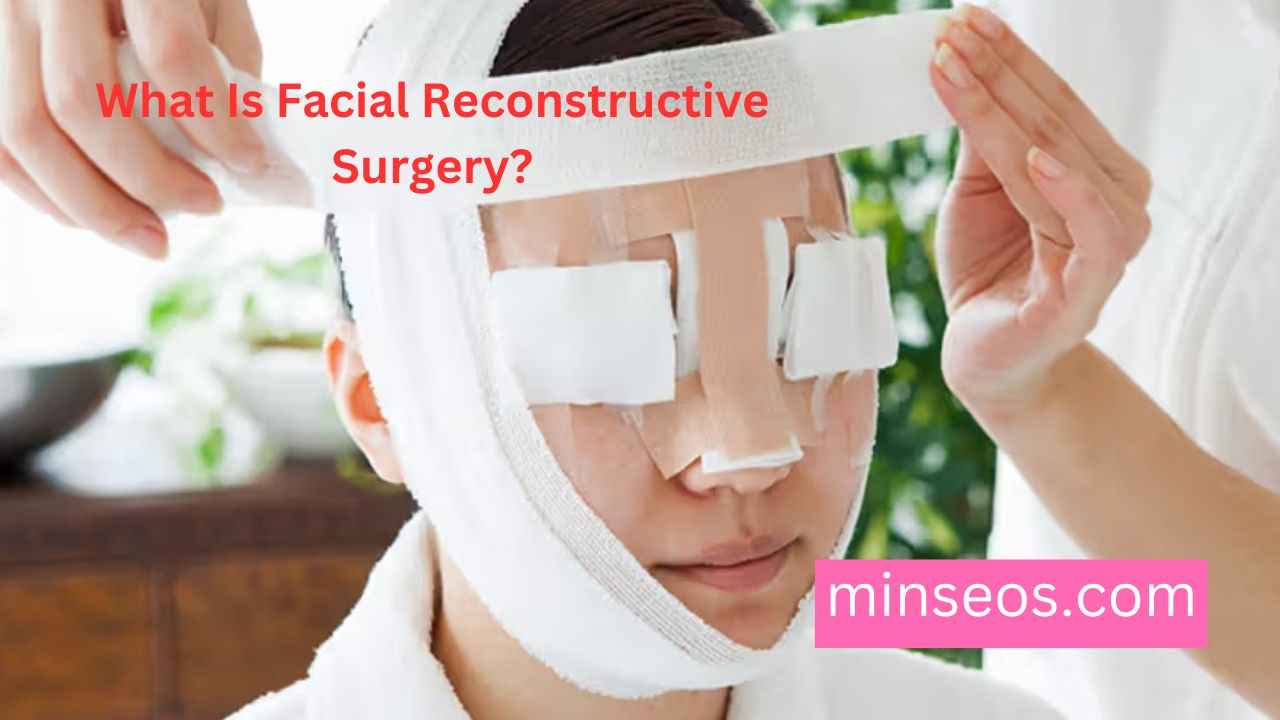Rebuilding a portion of your face is known as facial reconstruction surgery. Following a prior face surgery, a catastrophic facial injury, or structural abnormalities from birth, you may require facial reconstruction surgery.
Damage to your face can be repaired by facial reconstruction, including your:
- skin
- bones
- nerves
- other soft tissue like cartilage
In certain situations, enhancing function could be the main driving force behind facial reconstruction. In other situations, it might be to make you feel better about the way you look.
Continue reading to find out more about facial reconstruction, including the different kinds of surgery, when it is done, and what to anticipate from the process.
Types of facial reconstruction surgery
Numerous forms of facial reconstruction can be carried out by medical professionals. Among them are the following:
- Facial trauma surgery: Resetting shattered bones in your face may be necessary during facial trauma surgery, either with or without an incision. According to a 2019 Italian study, the jaw and the middle part of the face are the most frequently injured areas of the face.
- Cleft lip and palate repair: From birth, cleft lip and cleft palate are structural abnormalities. While palate correction is typically done between the ages of 6 and 12 months, surgery for a cleft lip is typically done between the ages of 3 and 6 months.
- Nose reconstruction (rhinoplasty): To improve your breathing or for esthetic (or appearance-related) reasons, a nose reconstruction attempts to solve issues with your nose. It entails altering your nose’s size or form.
- Ear reconstruction: Your ear’s outer portion gets reshaped as a result. Physicians may do it in response to a catastrophic accident or because of a birth defect.
- Scar removal: Lasers are frequently used in scar removal surgery. This procedure is done by doctors to eliminate scars from prior surgeries or injuries.
- Facial reconstruction after cancer surgery: A tumor and surrounding tissue are frequently removed during cancer surgery. Following cancer surgery, reconstruction entails reshaping your face.
- Facial reanimation: Repairing the nerves that enable you to move a portion of your face is also referred to as facial paralysis surgery.
- Chin augmentation: The goal of chin augmentation is to remodel your chin’s front. A genioplasty is an addition to your chin, whereas a mentoplasty is the removal of material from your chin.
- Skin grafts: To cover portions of your face, skin grafts entail taking skin from a donor or another part of your body.
- Microvascular free tissue transfer: To recreate specific facial characteristics, a surgeon will remove skin, bone, or muscle from one area of your body and apply it to your face.
- Local tissue rearrangement: This entails covering one area of your face with a skin flap from another area.
- Implants and prosthetics: Prosthetics and implants are artificial components composed of materials such as plastic or ceramic. They assist in replacing facial features that medical professionals are unable to transplant. For instance, if you are lacking bone in your jaw or cheek, you may be eligible for an implant.
Surgeons are still developing new surgical techniques. The first complete eye and partial face transplant was completed by medical professionals in 2024.
Facial reconstruction surgery risks and complications
There are dangers associated with every surgical treatment. Complication rates are typically greater for more involved and urgent surgeries than for planned, non-emergency treatments.
Risks associated with general surgery may include:
- reaction to anesthesia
- severe bleeding
- shock
- infections
- scarring
- blot clots
- lung problems
- urinary retention
Facial reconstruction surgery procedures
Here is a broad overview of what to anticipate before, during, and following the process.
Before
You will have your surgery in an emergency room if it is an emergency procedure.
If your surgery is scheduled, you will need to avoid eating and drinking for several hours before the procedure if you are under general anesthetic. Usually, you have to abstain from eating for six hours and drinking for two hours before the procedure.
During
The type of surgery you have will determine a lot of what happens during the process. Your surgeon may:
- remove skin from other bodily parts.
- remove cadaveric skin or other tissue.
- create cuts to gain access to deep tissues like bone.
- set your bones without incisions
- repair damaged or missing teeth
After
After your treatment, you’ll probably wake up with bandages covering your face. The extent of your pain, swelling, and bruises may vary depending on the location and severity of your injuries.
Preparing for facial reconstruction surgery
If the treatment is scheduled, your surgeon will probably do several tests to determine whether you are healthy enough to have surgery and to determine the scope of the required surgery.
Recovering from facial reconstruction surgery
It can take a while to recover from facial reconstruction surgery and underlying injuries.
Your cognitive function may improve for years if you have brain damage from a head accident. The first three to six months following traumatic brain injury are typically the most rapid.
Facial reconstruction surgery recovery time
The severity of your injuries and operation will determine how long it takes you to heal. Bandages will probably be in place for five to seven days after a full-thickness skin graft.
Avoid bumps and knocks for at least 6 to 8 weeks if you have face fractures.
For four to six weeks, the majority of individuals who have a broken jaw will require jaw surgery.
How much does facial reconstruction surgery cost?
The following variables may affect the price of facial reconstructive surgery:
- the extent of your procedure
- your geographic location
- the hospital or location where you have it performed
The cost of a complete facial reconstruction procedure can exceed $100,000. Smaller operations typically have much lower costs. For instance, according to the most recent data from the American Society of Plastic Surgeons, the average cost of rhinoplasty is $7,637.
Takeaway
After serious traumas, birth defects, or after prior surgery, facial reconstruction surgery is done to restore a portion of your face. Numerous surgical procedures are carried out.
Either a planned procedure or an emergency surgery can be used for facial reconstruction. In general, planned procedures produce better results and have fewer complications.
Sources: https://www.guysandstthomas.nhs.uk/health-information/anaesthetic/your-surgery-or-treatment




Leave a Reply